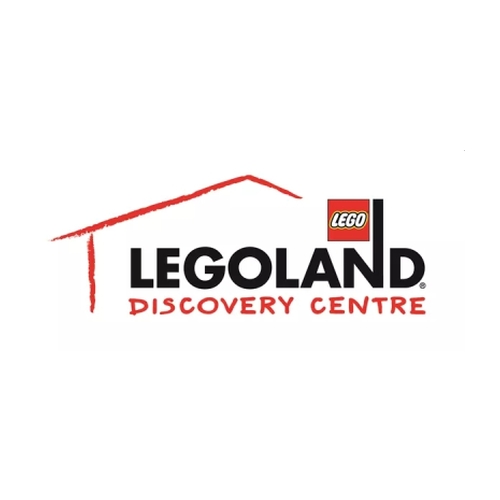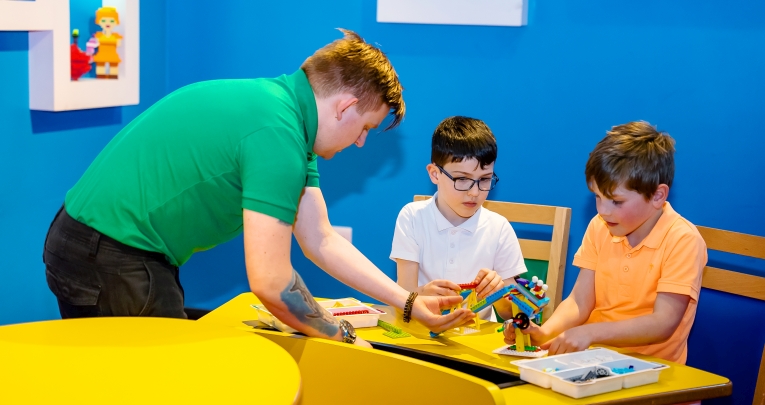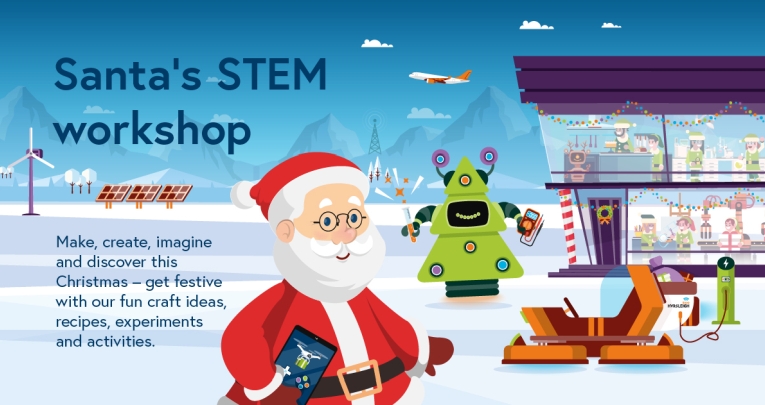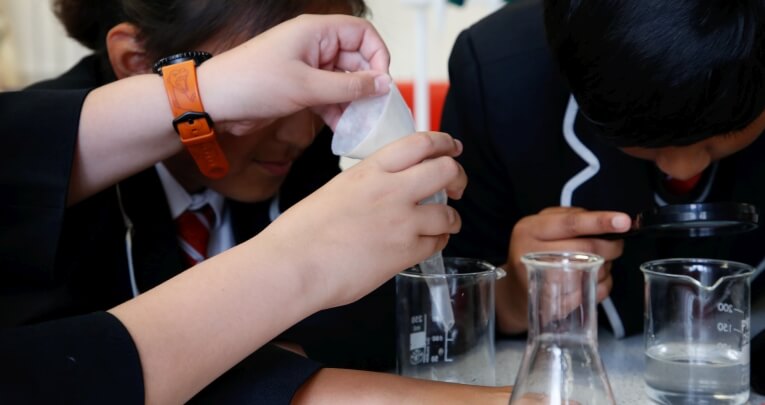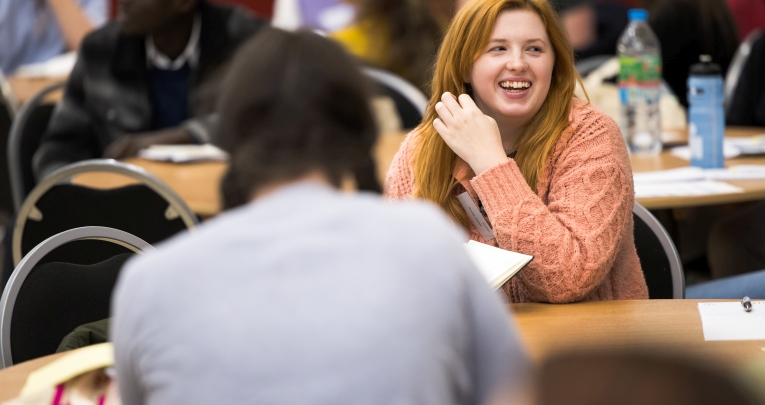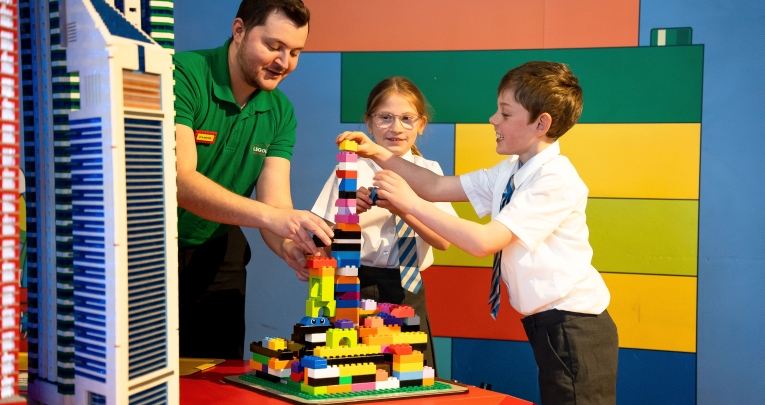LEGO® – even the name generates a buzz of excitement.
It has a tangible emotional connection across all ages and is a tried-and-supremely trusted classroom resource thanks to its ability to let children’s creativity, imagination, and self-expression flow across the curriculum.
In fact, probably the only way you could squeeze even more educational value out of these universally loved bricks is if you combined them with a valuable opportunity for your pupils to learn outside the classroom – and that’s exactly what’s on offer at the LEGOLAND Discovery Centres in Birmingham and Manchester.
They are the ultimate LEGO playground, bursting with unique, high-quality learning opportunities to build, play, tinker and experiment, and with their new Learn and Build workshops, they now have even more to offer visiting schools.
A Learn and Build workshop promises to immerse children in creative, STEAM-focused building activities. The workshops utilise LEGO Education’s ‘BricQ Motion Essential’ kit – purpose-built science sets that encourage active learning about forces, motion, and interactions in the context of sports.
The fun, hands-on learning experiences they provide are accessible for all, offering plenty of help and inspiration to support the building process.
“A Learn and Build workshop promises to immerse children in creative, STEAM-focused building activities.”
Although they are expertly scaffolded by the skilful Discovery Centre facilitators, the well-designed workshops operate on the assumption that ‘the answers are already in the room’ – i.e. that it’s the children themselves who will make the discoveries that broaden their understanding.
The workshops are age-appropriate, with options available for both Y1–3 and Y4–6, but all options are curriculum-linked and designed to boost communication, collaboration, critical-thinking and problem-solving skills.
Each prioritises cooperative learning, and the activities help reshape interactions between pupils. While the children are engaged with playing and making with their hands, debate naturally ensues, with their reflection and analysis mediated by the bricks.
Learn and Build workshops are therefore a blockbusting way to encourage children to engage with, reflect on, and experiment with ideas and experiences that spark cool ‘aha’ moments.
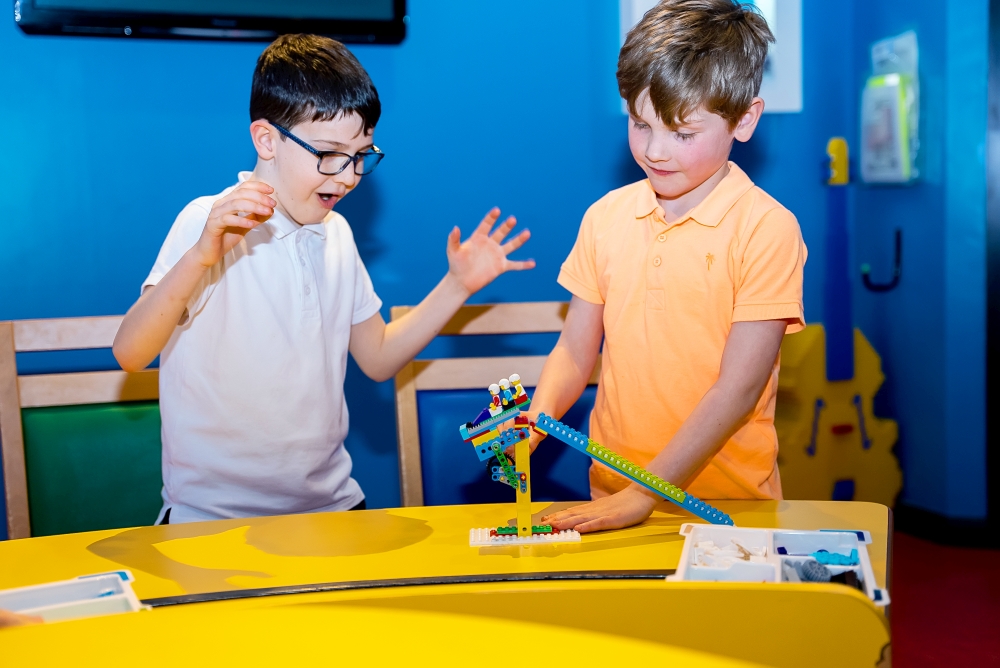
What’s on offer?
For Key Stage 1 and lower Key Stage 2 there are two fabulous workshops available: ‘Get Up and Dance’ and ‘Push Car Derby’.
In the former, children turn DJs by learning how cogs and gears of different sizes work together in a dynamic multi-media learning experience. They help minifigures dance and get to show off their own awesome moves!
This dance-based workshop helps pupils explore how pushing on an object can change the speed or direction of its motion and start or stop its movement. It also helps them understand that objects push on one another when they touch and that this can change their motion.
In ‘Push Car Derby’, children get to build and experiment with push and pull forces to make a car that can be named the Push Car Derby champion!
“For Key Stage 1 and lower Key Stage 2 there are two fabulous workshops available: ‘Get Up and Dance’ and ‘Push Car Derby’.”
Learning about fair science experiments, they get to construct a launcher and explore how force and friction can change the speed of an object and affect how far it will go in a push car race.
Both workshops last 30–45 minutes and are suitable for 10–30 children.
At the heart of both workshops is the learning through play philosophy. LEGO gives children the materials to explore their world and invest it with meaning.
They’re encouraged to build, but then take a step back, consider what they’ve made, and change it as they see fit. They promote curiosity in a hands-on and heads-in way, developing insight and skills through ‘hard fun’.
This active engagement leads to increased motivation, self-efficacy, and enjoyment of learning.
Continuing the learning
Crucially, the fun doesn’t have to end at the Discovery Centre – teachers can easily build on the fantastic workshop experience by embracing similar approaches to learning once they return to the classroom.
LEGO bricks connect concepts and help children make sense of the world around them; they facilitate first-hand constructionism at its best and boast cross-curricular credentials like no other resource.
They’re playful and engaging, but above all they’re world makers. You make what you want with them and create whatever world takes your fancy. Children are the brick authors, and the possibilities are limitless.
“Teachers can easily build on the fantastic workshop experience by embracing similar approaches to learning once they return to the classroom.”
A LEGO factory of untamed ideas and stories are inside every child, but sometimes they just need a bit of help getting them out. This is why Learn and Build is a great launchpad for their ideas to take flight.
Visiting a LEGOLAND Discovery Centre will help you truly understand the potential of LEGO as a building tool in your classroom and why the bricks are a complete STEAM learning solution for schools.
This is all about the joy of discovery. LEGO and science is a fantastic combination for making concepts click together. It’s the perfect fit!
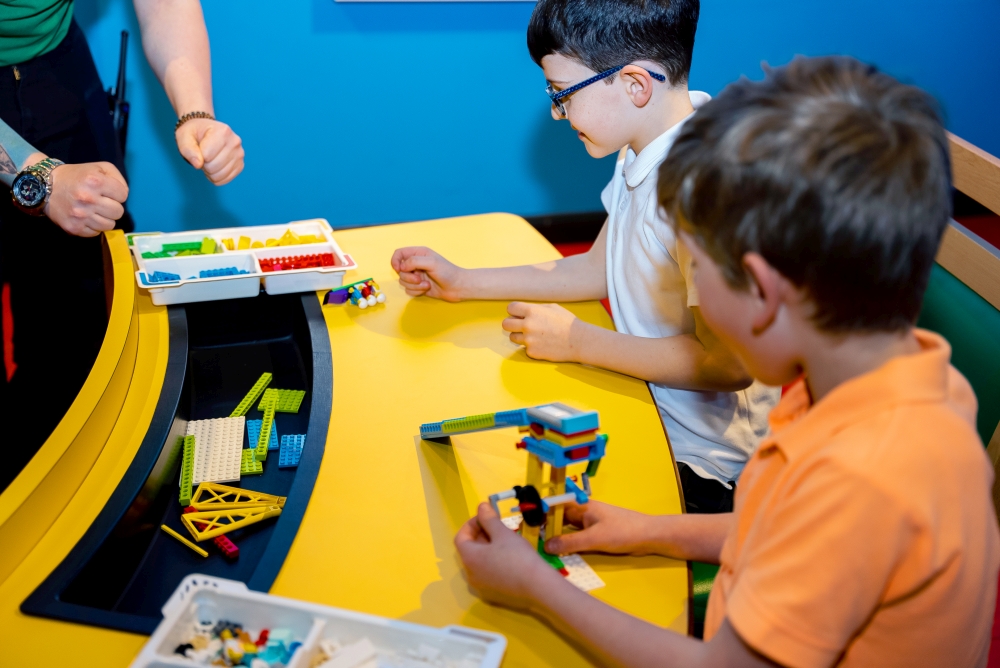
In summary
The LEGOLAND Discovery Centres’ Learn and Build workshops foster engagement, challenge, and a motivation to learn and are a conducive atmosphere to help children:
- > discover principles and concepts by constructing, manipulating, and experimenting in a controlled classroom situation
- > conduct real-life experiments to discover the principles and concepts behind forces
- > gain practical knowledge that can be applied in real situations
- > ask questions and participate in active enquiry
- > use critical-thinking skills to solve problems and build new knowledge
- > investigate and find appropriate answers
- > participate in authentic scenarios to promote authentic learning
- > increase their creativity
- > experience plenty of fun in the context of an engaging learning experience
- > be independent learners and develop a sense of self-worth
- > develop cognitive, intrapersonal, and interpersonal 21st-century skills
- > build some memories
It all stacks up to a bricktastic day of playful STEAM learning!




